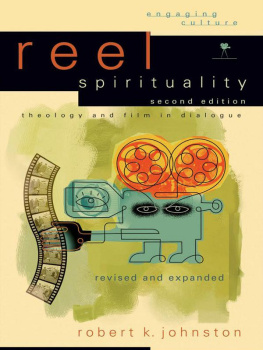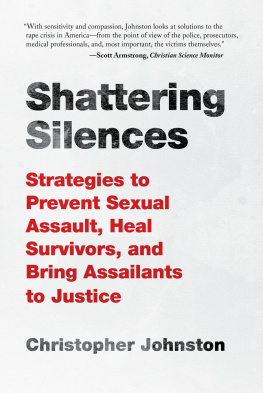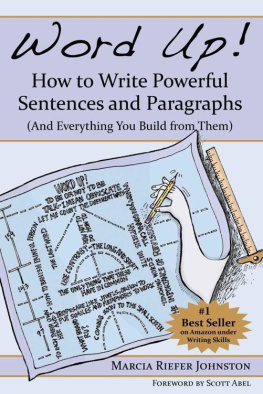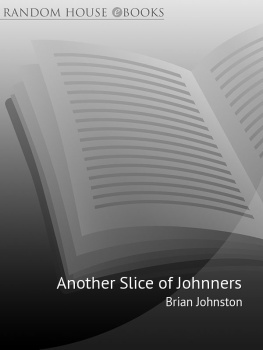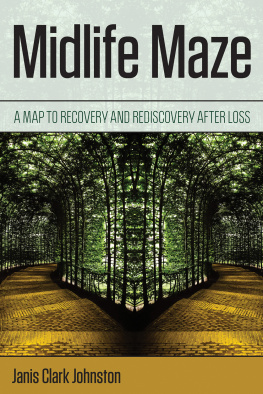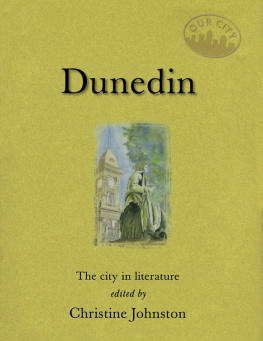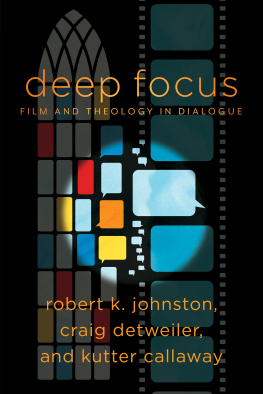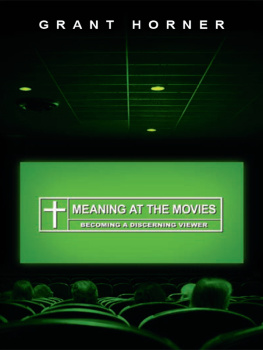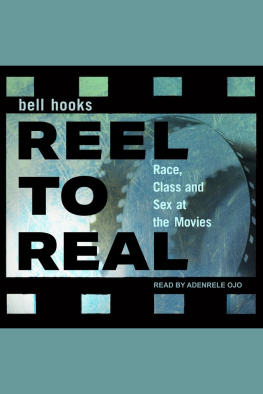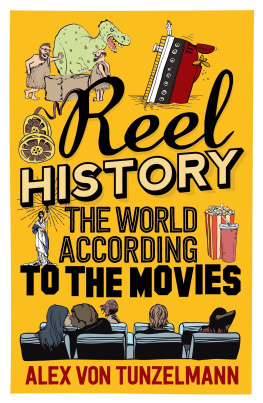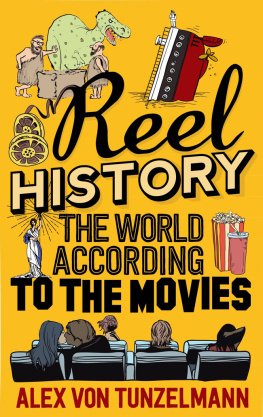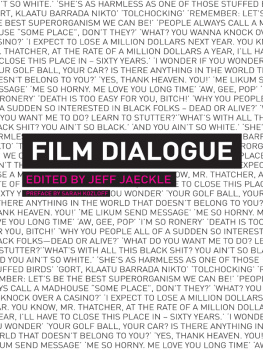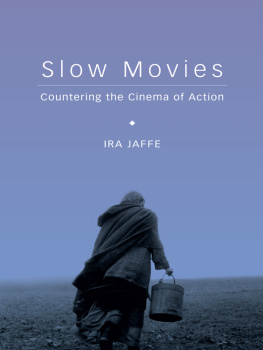reel
spirituality
Engaging Culture
WILLIAM A. DYRNESS
AND ROBERT K. JOHNSTON,
SERIES EDITORS
The Engaging Culture series is designed to help Christians respond with theological discernment to our contemporary culture. Each volume explores particular cultural expressions, seeking to discover Gods presence in the world and to involve readers in sympathetic dialogue and active discipleship. These books encourage neither an uninformed rejection nor an uncritical embrace of culture, but active engagement informed by theological reflection.
reel
spirituality
theology and film in dialogue
second edition
robert k. johnston

2000, 2006 by Robert K. Johnston
Published by Baker Academic
a division of Baker Publishing Group
P.O. Box 6287, Grand Rapids, MI 49516-6287
www.bakeracademic.com
Printed in the United States of America
All rights reserved. No part of this publication may be reproduced, stored in a retrieval system, or transmitted in any form or by any meansfor example, electronic, photocopy, recordingwithout the prior written permission of the publisher. The only exception is brief quotations in printed reviews.
Library of Congress Cataloging-in-Publication Data
Johnston, Robert K., 1945
Reel spirituality : theology and film in dialogue / Robert K. Johnston.2nd ed.
p. cm.
Includes bibliographical references (p.)
ISBN 10: 0-8010-3187-7 (pbk.)
ISBN 978-0-8010-3187-8 (pbk.)
1. Motion picturesReligious aspects. I. Title.
PN1995.5.J59 2006
261.57dc22
2006023923
Unless otherwise indicated, Scripture quotations are from the New Revised Standard Version of the Bible, copyright 1989, Division of Christian Education of the National Council of the Churches of Christ in the United States of America. Used by permission. All rights reserved.
Scripture quotations labeled GNT are from the Good News TranslationSecond Edition Copyright 1992 by American Bible Society. Used by permission.
Scripture quotations labeled KJV are from the King James Version of the Bible.
Scripture quotations labeled NIV are from the HOLY BIBLE, NEW INTERNATIONAL VERSION. NIV. Copyright 1973, 1978, 1984 by International Bible Society. Used by permission of Zondervan. All rights reserved.
All photographs appearing in this book were supplied by Photofest, New York, New York.
For Cathy
my companion in
faith, film, and life
Everything you need to know about life is in the movies.
Travis, Grand Canyon
I didnt want you to enjoy the film. I wanted you to look very closely at your own soul.
Sam Peckinpah, director
contents
Photos
Figures
d. = director, directed by.
preface to the
second edition
Sister Rose Pacatte, a film educator and reviewer for the St. Anthony Messenger, tells of going to the cineplex. Dressed in street clothes, she had come to see The Missing (2003). Sitting next to her was a young professional woman with whom she struck up a conversation. Sister Rose asked, Why did you come to the movies today? To which the woman replied, This is the third movie Ive seen today. I think my boyfriend is going to propose to me today, and Im not sure I am ready. I always come to the movies when I have to figure out my life. So you needed a retreat or spiritual direction, Sister Rose commented, but you came to the movies. Thats what I and my friends always do, was the reply. We can always find solutions in the movies.
It is a fact. Movies function as a primary source of power and meaning for people throughout the world. Along with the church, the synagogue, the mosque, and the temple, they often provide people stories through which they can understand their lives. Sister Rose no doubt spoke to us in hyperbole when criticizing the church for its irrelevance. There are, of course, places of worship that are vibrant and meaningful. But people both within the church and outside it recognize that movies are also providing primary stories around which we shape our lives. Movies block out the distractions around us and encourage an attentiveness toward life. Presenting to viewers aspects of their daily lives, both intimate and profound, movies exercise our moral and religious imagination. They allow us to try things on. From the stories we see on the screen (or in our living rooms), our spirits quicken. Or so I argued in the first edition of Reel Spirituality and will again suggest in the pages that follow.
Although the overall continuity between editions of this book will thus be apparent to anyone who reads both, there are also important changes in both the books tone and its content. First, while the power of movies both for good and for ill has long been recognized (Sister Roses experience, for example, finds its on-screen equivalent in Woody Allens 1985 movie, The Purple Rose of Cairo), the non-liturgical branches of Protestant churches have been slower to accept, let alone embrace, this truth. Moreover, churches and synagogues, whether conservative or liberal, have until recently failed to act on this realityto realize the importance of engaging spiritually with movies as part of their congregational activity. Thus, the first edition of this book attempted an apologia; it mounted an argument in favor of movie watching by Christians. Not everyone thought this necessary, however. Some reviewers, particularly from more mainline Protestant and Catholic traditions, criticized the book for being too defensivefor even bothering to justify the churchs engagement with film. Jim Friedrich, for example, wrote in his review of this book in Episcopal Life, His evangelical background compels him to make arguments in favor of movie-going that Anglicans take for granted. Friedrich is no doubt right. The question today for most Christians is not whether the church should engage Hollywood, but how that engagement should best be donehow, that is, Christians might best relate their practice of faith to their moviegoing. Thus, readers of this second edition will find the dialogue between theology and film more assumed than argued, even as we seek to better understand its artistic power and theological possibilities.
A second criticism of Reel Spiritualitys first edition centered on my perceived overdependence on a literary model of filmic interpretation. For some, their critique includes with it the more radical rejection of story as central to a films power and meaning. I disagree with any attempt to jettison story, as chapter 6 argues. If anything, the role of narrative in film is more recognized today than when the first edition was written. It is the use of narrative technique within documentaries, for example, that is partly responsible for the increased popularity of these movies today. But the more general critique of this books first edition still has force. It is simply true that movies tell their stories in a different way than novels. Unlike literature, movies make use of a threefold narrative techniquetelling their stories through script, music, and image. The first edition of this book, while noting this fact, failed (as do most studies in theology and film) to give adequate treatment to music and to image, centering more on text alone. The criticism of reviewers was thus justified. Readers of this volume will therefore note that a whole chapter has been added discussing the importance of music and image for understanding a films power and meaning.
Students who have used Reel Spirituality in my classes have often voiced a third concern, one this edition also addresses. They have frequently expressed a desire for a more explicit treatment of ethical issues that arise out of peoples experience with film. Viewers not only experience movies; they also reflect on those experiences regarding their adequacy for life. Because I wanted to locate the primary source of the power and meaning of a movie in viewers experience of it and also wanted to avoid the typical judgmental tone of an earlier generation of theological reflection on film, I did not adequately address the secondary ethical reflection that arises naturally in the dialogue following peoples encounter with a movies story. To remedy this omission, this second edition includes a new chapter that moves the discussion of theological ethics beyond the churchs fixation with the rating system.
Next page
